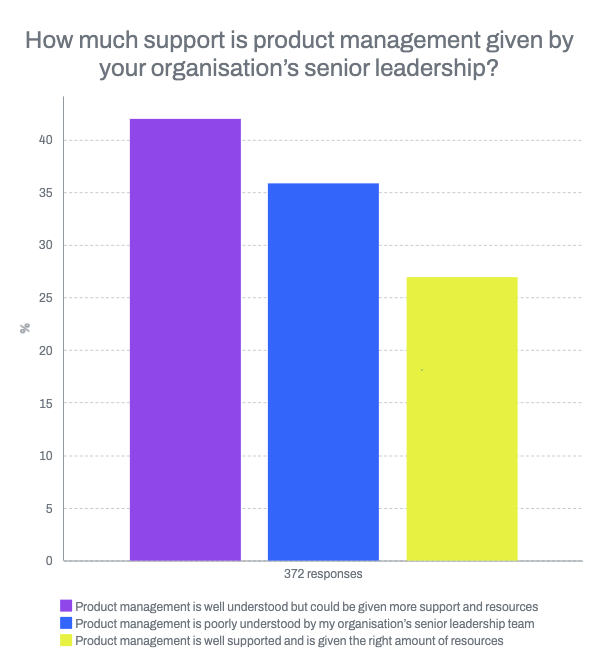Who is leading the race to develop AI products? In May, we surveyed product people around the globe to learn how the community is leveraging AI in their personal work and the products they provide to users.
The survey found an interesting dichotomy. While European and North American product people are equally as likely to adopt AI in their personal work, North American product people (58%) are significantly more likely to add AI features to the products they provide to customers, compared to 34% of teams in Europe.
Today’s product professionals realise the massive opportunity for AI to increase their own productivity, but fear and regulation still control the narrative around AI in many organisations, especially in Europe,” says Todd Olson, CEO and co-founder of Pendo.
AI features being underused
User engagement with AI features is a big issue. However, only 15% of product leaders in North America and Europe report that their users are embracing AI features. Additionally, just under one in ten (9%) of product managers stated that users have only engaged with their new AI features after extensive tweaks from the team. This calls for businesses and product teams to crack the code to drive the adoption of AI features.
Additionally, two-thirds of European businesses have increased the size of their UX and research teams compared with less than a third (27%) of North American businesses. Francesca Buckland, Vice President of product at Clarivate, explains her company’s strategy to user experience and AI: “AI has streamlined so many product processes, but to bridge the gap and begin successfully implementing AI features into our end-user products, we need to first understand what their needs are. “Taking a user-led approach to developing and implementing AI features is critical for ultimately seeing widespread user adoption.”
Using AI for daily tasks
Product managers are very happy to use AI tools in support of their day-to-day work, even if their users appear reluctant to embrace new external features. Over two-thirds (69%) of European product managers and 62% of North American-based product managers say that they have embraced AI to help with their daily tasks.
OpenAI's ChatGPT continues to hold its first-mover advantage in the AI race, with 71% of North American-based and 65% of European-based product professionals currently using OpenAI’s ChatGPT. The use of custom-made LLMs is still nascent, with just 17% of North American and 5% of European product managers currently building AI features using their businesses’ self-trained models.
Establishing product in organisations
Moving onto the state of product today, our findings revealed that product management is widely recognised and established in the C-suite—28% of organisations have fully embraced a Chief Product Officer (CPO). Furthermore, one-third (32%) partially recognise the value of product, indicating a growing trend towards product leadership and opting for a product-led approach to business objectives. Despite progress in this area, 13% of respondents state that they are still operating within engineering-led organisations, suggesting that there is still a minority of businesses yet to embrace product-led business models.
It’s no surprise that resources were a contentious topic for many respondents. Nearly half (43%) feel that despite needing more resources, senior business leaders understand the product function. Conversely, 30% of respondents feel that leaders lack both understanding and the necessary resources. It’s clear that communication and alignment between product teams and the broader executive suite are imperative for business growth.

Another interesting trend is the increasing demand for growth-focused product managers. one in four (23%) have grown and established growth teams in the past two years, and another 21% plan to create growth product teams in the near future. This points to an increasing recognition of how important product managers will have to play in driving business growth.
Remote working
Finally, we looked to find out the state of remote and office work. Over half (56%) of respondents stated that the shift towards remote and hybrid work has had a minimal impact on how their organisation approaches the products we build for employees, while 28% stated that whilst changes in working patterns have impacted some roadmap iterations, core product offerings for employees have remained the same. Interestingly, though, 8% of respondents stated that the move towards remote and hybrid work has completely changed the way their organisations approach the products they build for employees.
We plan to periodically survey our readers on these topics to understand the dynamics of AI adoption. Stay tuned for more of our findings!







